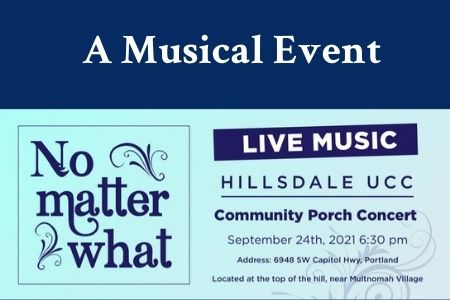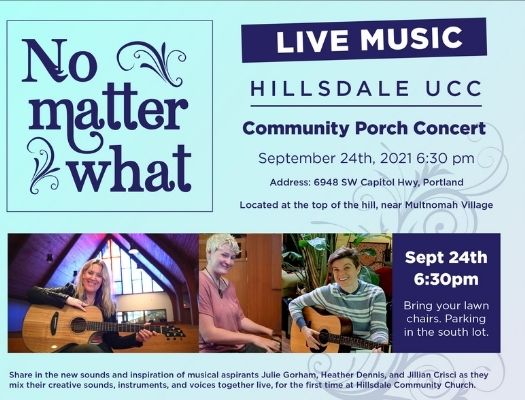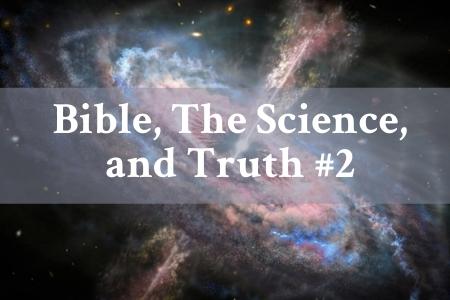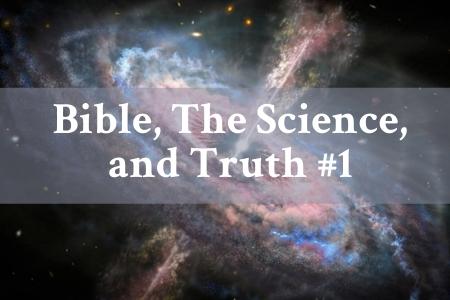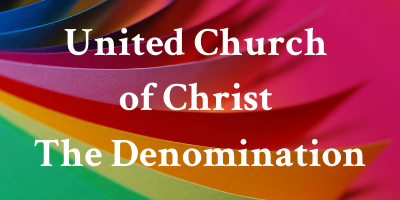We Don’t Need to Change the Story, Just Change Our Eyes as We Read.
The entire point of this two-part blog post, of which this is the second half, comes down to this one statement: What we find when we each read and ponder passages in our Bible is a stirring together of our own previous personal scholarship, and what the complexity in the neuro-networks of our individual brains allows us to see.
In earlier posts, I have focused on many “missings” in the scholarship of most people who profess to be Christian. So let’s look at the other part of our issue this time, OK? To do this in a fun way, here is an exciting “What if?” In a recent talk given at our sister church, Hillsdale Community UCC, our own Christ the Healer UCC co-organizer, Gabrielle asked the question, “What if all of that serious stuff that Jesus is remembered as having declared with great solemnity, had really been tossed lovingly at his listeners with a smile on his face and a chuckle in his voice?”
That would be a mind-blower wouldn’t it? If this so-called suffering man of sorrows had been showing off a life of unconditional joy in his own thought, word, and deed? The implications of this idea are more than explosive, they would be an earthquake under the entire twin enterprises of teaching Christian thought, and of our understanding of his message. Most importantly of all, we would have a clear demonstration of why the tales about Jesus and what he did, and what he said were called “Gospels” which means “Good news,” from the first, bearing in mind that some folks look at the doctrine that says, “Believe that I am God, or you go straight to hell,” as anything but good news. Let’s test out a couple of more-or-less random samples paraphrased to make them more sharply pointed, alright?
There is one shocking story where Jesus is recorded as rebuffing a Canaanite woman who begs for a healing of her daughter, with the chilling words “When the children of Israel go hungry, should I give food to the dogs?” Hardly a loving, all-embracing attitude right? This passage has occasioned a lot of ducking, shuffling, jinking, and excuse-making down the centuries, but whatever is said to slide past the bad impression, these words that dismiss a non-Jewish woman as a dog continue to create an unpleasant stir in many hearts. But what if, Jesus, already established as a famously clever debater, was laughingly playing to the surrounding crowd, poking fun at their tribal prejudice, rather than showing off his own? If that is the case, then his instant cave, when the quick-witted foreign woman shoots back with her own saucy answer, “Even the dogs under the table get to eat scraps,” makes far more sense.
Well, OK, you might say, but what in the Bible can possibly tell us that Jesus had a sense of humor? He always seems like such a hard-core sobersides. My reply has to be multi-layered and nuanced, so please follow along carefully. Our first step is to admit that thousands of years of worshipful tradition, along with a groveling style of reaction to what is called “high Christology” – which means putting our first attention on the ancient doctrine that Christ is fully God, in preference to balancing that understanding with the co-equal doctrine that Christ is also fully human. This co-equal doctrine was issued, by the way, by a Council of Bishops at the very same long-ago moment. The result is that this impression has been stamped into nearly everyone’s mind. So, let us examine that.
If Christ is fully God along with being fully human, then what we know about God applies to him, right? So, let’s consult Isaiah, where in one passage we find that prophet, speaking for God, declaring, “My thoughts are not like your thoughts, nor are your ways, my ways.” Deity, which is one and only one absolute totality, needs no self-protection at all. Deity merely loves, and does so joyfully. That is Jesus’ actual inner nature, and ours too, once we can find it under our knee jerk need to battle for our lives.
Returning to Jesus’ stories and sticking with his relation to women, let’s examine the story of his being buttonholed by a bunch of self-righteous men, heavy rocks already in hand, who bring him a woman, saying “This slut was caught right in the act of committing adultery. Speak your holy judgment, teacher, and join us in stoning her to death.” The story says that he bent down and wrote in the dust. What if he was simply hiding his knowing smile from the boys, whose hearts he knew? What if he was giving them time to hunger for, then hang on his coming words? “OK, then let the one without sin throw the first stone.” Then he looks down again. When he looks up the woman and he are alone, and she is still alive. When he addresses her directly, his tone is fatherly, loving, and smilingly kind as well as sad, not a thundering admonishment. Instead amounting to a directive: “Go home, clean up, think about what has happened, and miss the mark no more. Your sin is forgiven, but you must learn to do better.”
Or how about his dealings with that iconic pair of sisters, Mary and Martha? Jesus the itinerant Rabbi has slogged into Bethany, just two miles outside of Jerusalem proper, and is putting up at their house. It is clear that he has been their guest before, and they are very familiar with one another. Both women are excited with the visit and determined to get the most out of the evening. Mary by taking advantage of Jesus’ teaching and general aura, Martha by honoring her beloved guest with the best feast that she can prepare. She sets to with a will, yet it is soon obvious to her that she has bitten off too much. She can not get it all done in time. Many are the highly responsible adults who read these words will recognize that sudden, sinking feeling, and recognize also, what happens next.
Put yourself in the scene. You are Martha, your big gift is about to flop, your nerves are stretched thin, and you are about to snap. Instead of presenting Jesus with warmth and celebration the way you had planned, you go to the teacher with a whine instead. A further humiliation. “Rabbi, don’t you even care that my sister has left me alone in the kitchen? Tell her to come out and do her part the way she should!” Then hear Jesus’s sweet reply, imagining that he smiles, lowers his voice and speaks softly, teasing slightly, maybe pulling at the strings of her apron. “Martha, Martha you get so distracted by so many things! There is only one thing that’s important, and Mary has zeroed in on that very thing. Calm down, take a rest, maybe some of the others will lend a hand, maybe I will help out when my teaching job is done for the evening. It is all going to be all right.” How do you react to this picture?
Or, how about this: The same family in the town of Bethany, the brother, Lazarus took ill days ago. Jesus the miracle worker was sent for, but for some unknown reason he has dragged his feet for a total of four days, and Lazarus has died. When the Rabbi reaches the dwelling, Martha, who has been on the lookout, meets him on the road. “Master! You are here at last. If you had been here in time, my brother would not have died. In the ensuing dialogue, Jesus gets Martha to declare that she knows that his is the awaited “Anointed One,” in a manner that implies that God’s grace will of course respond to his word even at this late date. Then he says that they should go to the tomb, implying that they will pray together.
Meanwhile the weepy, more volatile Mary has also rushed out, and stings him with the same message. “Had you been here, our brother would not have died!” delivered with an undertone of, “Didn’t you care enough?” When they get to the tomb a big group of mourners is loitering about, everyone down-hearted. Jesus weeps to see their pain. That is when he orders the huge stone wheel that blocks the tomb be rolled aside and Martha, ever the practical one, squeals in protest, “It has been four days! It will stink!” Yet what has been ordered is accomplished, and Jesus, showing of his chops at last, yodels into the cavity that has been carved into that limestone ridge, “Lazarus come out!” And of course, in our story, Lazarus does.
Does the above amount to historically accurate reportage like something we might expect to see in the New York Times? I absolutely have no way of knowing, and sort of suspect not, but I can say this with confidence: “At the deepest level available to me today, it is definitely true.” If you are eager to have ever deeper levels of reality within your own grasp, or merely wish to explore the “whichness of why,” and what makes that old mystery tick: please, sign up joyfully, delightedly, ebulliently to receive our Christ the Healer UCC newsletter.
And even better…
Join our interactive community, take part in our exercises and offerings, and participate in the ongoing, ever-evolving fun. We are ready to welcome you with wide-open arms!


